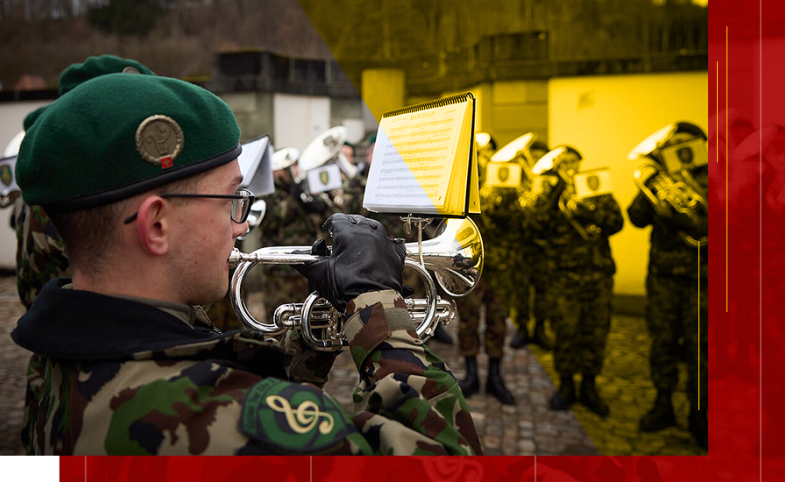“Public Diplomacy in the News” is a CPD Blog series by Andrew Dubbins that spotlights noteworthy stories on public diplomacy topics such as cultural diplomacy, nation branding, exchange programs, international...
KEEP READINGThe CPD Blog is intended to stimulate dialog among scholars and practitioners from around the world in the public diplomacy sphere. The opinions represented here are the authors' own and do not necessarily reflect CPD's views. For blogger guidelines, click here.

Public Diplomacy in the News: Ukraine’s Music Diplomacy, Paris Olympics Preview, and Antarctic Science Diplomacy
“Public Diplomacy in the News” is a CPD Blog series by Andrew Dubbins that spotlights noteworthy stories on public diplomacy topics such as cultural diplomacy, nation branding, exchange programs, international events and conferences, digital diplomacy, and strategic global communications.
Ukrainian musicians-turned-soldiers use music to resist Russian invasion. Former professional musicians in Ukraine, now members of the Cultural Forces, are using their talents to resist the Russian invasion through music. Despite injuries sustained in battle, like Yurii Ivaskevych who lost a leg, these musicians perform across Ukraine's front lines to offer a sense of normalcy and diversion from the war. Playing a range of music from Ukrainian folk songs to Metallica, they uphold a tradition of using music as a form of resistance. Their efforts also include touring in the U.S. to garner support and raise awareness of Ukraine's struggle.
Michael Birnbaum and Kostiantyn Khudov / The Washington Post
Previewing July’s Summer Olympics. The 2024 Paris Summer Olympics begin on July 24 with men's soccer and rugby, followed by the official opening ceremony on July 26, featuring a historic Seine River parade. The Games will span 16 days, ending on August 11 with 13 gold medal events and a closing ceremony at Stade de France. Paris, hosting the Summer Olympics for the third time, will see events at 35 venues, including the Seine River, Château de Versailles, and Teahupo'o in Tahiti. The 2024 Games feature 32 sports, with breaking (breakdancing) debuting and climbing, skateboarding, and surfing returning from the 2021 Tokyo Olympics.
Antarctic oil discovery threatens scientific diplomacy. Russia's recent discovery of massive oil reserves in the British Antarctic Territory poses a threat to the Antarctic Treaty System, which has historically promoted international scientific collaboration over territorial claims. The revelation has prompted countries like Chile to strengthen their military presence in Antarctica, highlighting the fragile nature of the treaty in the face of geopolitical tensions. Despite the potential erosion of solidarity, the climate crisis might still motivate treaty parties to prioritize scientific cooperation and conservation. The Antarctic region, home to significant freshwater reserves and critical for global climate stability, underscores the need for robust multilateral governance to prevent resource exploitation and maintain scientific diplomacy.
Lessons from half a century of U.S. foreign policy. Stuart E. Eizenstat's new book The Art of Diplomacy chronicles significant moments in American diplomacy over the last fifty years, showcasing the bipartisan efforts and technocratic nature of U.S. foreign policy. Featuring insights and endorsements from notable political figures across different administrations, Eizenstat emphasizes the importance of nonpartisan diplomacy while acknowledging the challenges posed by political influences. The book provides detailed case studies, including the opening of China and the Good Friday Agreement, though it occasionally overlooks the broader political contexts, according to a review by Fintan O’Toole of The New York Times. Eizenstat’s firsthand account of negotiating reparations for Holocaust survivors stands out for its moral intensity, highlighting the need for a more nuanced and reflective approach to diplomacy.
Fintan O’Toole / The New York Times
COP29 in Azerbaijan seeks to bridge divides amid controversy. The 29th UN climate conference (COP29) in Baku, Azerbaijan—set for November 2024—aims to bridge the gap between wealthy northern nations and poorer southern countries by focusing on climate finance, despite significant controversy. Azerbaijan, heavily reliant on fossil fuels, faces scrutiny as it attempts to showcase its renewable energy transition. The conference will seek to establish a new collective goal for climate finance, essential for developing countries to achieve a green transition, but disagreements over funding sources and methods persist. Geopolitical tensions, including Azerbaijan's recent conflict with Armenia and accusations against China for overexpanding its manufacturing capacity to undercut competitors, threaten to overshadow the event. Despite these challenges, COP29 aspires to progress towards a global financial settlement and substantial investment in climate action.
Visit CPD's Online Library
Explore CPD's vast online database featuring the latest books, articles, speeches and information on international organizations dedicated to public diplomacy.
POPULAR ARTICLES
-
January 29
-
January 20
-
January 28
-
January 2
-
January 8
Join the Conversation
Interested in contributing to the CPD Blog? We welcome your posts. Read our guidelines and find out how you can submit blogs and photo essays >.













